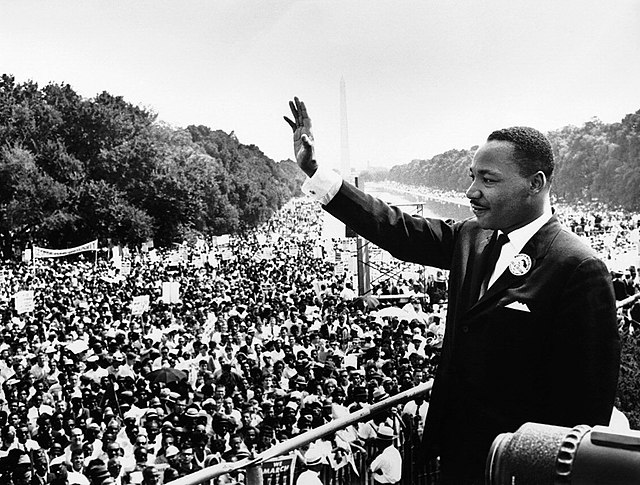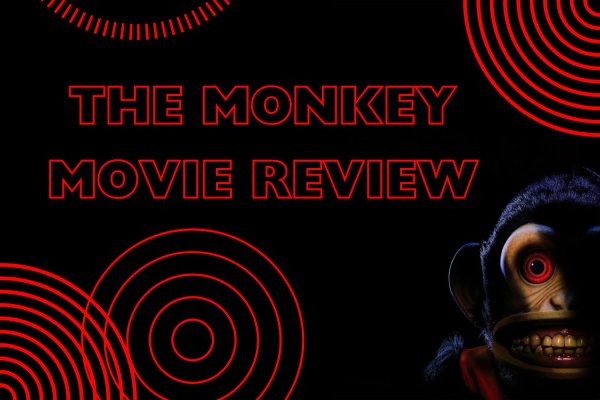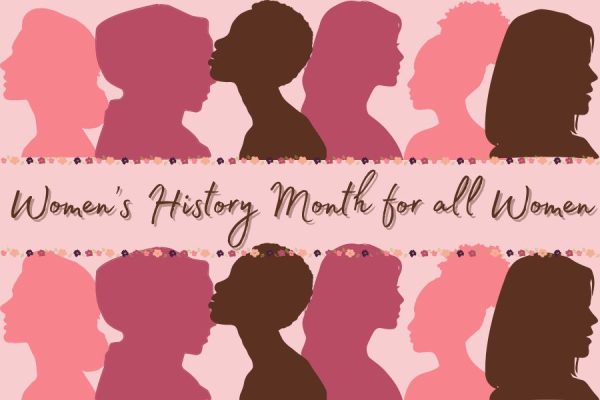OPINION | The whitewashing of MLK’s legacy
The beginning of the year rejuvenates interest in Reverend Martin Luther King Jr., as Jan. 16 marked MLK Day and February is Black History Month, a time in which his achievements as America’s foremost civil rights leader are brought to the forefront.
King was known for his lively, inspiring speeches. His “I Have a Dream” speech at the Washington Monument is his most famous and, to most, the crowning achievement of his tragically shortened life.
“I have a dream that my four little children will one day live in a nation where they will not be judged by the color of their skin but by the content of their character,” King said.
This singular statement has proven to be powerful and timeless, so much so that King’s “dream” has largely overshadowed the rest of the speech and his life.
Unlike the rest of King’s actions and beliefs, his “dream” is apolitical. He does not list specific policy demands or changes he wants to see implemented, nor does he blame any group for perpetuating racism and discrimination.
Right-wing pundits have taken advantage of the generality of his “dream” for the last 60 years. Though they despise King’s views, they can utilize this unsubtle, uncritical notion of equality as a means to feign support for King.
Many conservative commentators have painted a detailed, fantastical portrait of King, making him out to be a universally beloved American icon that would fully defend their positions if he were alive today.
This is patently false. King was a radical leftist and self-proclaimed socialist and died with a 75% disapproval rating. He was so loathed during his time alive that the Federal Bureau of Investigations (FBI) sent him a letter urging him to kill himself.
This is an insidious campaign taken on by politicians and media talking heads – people who follow an ideology that is opposed to what King stood for. They have used this single line to completely whitewash his critiques of structural racism, capitalism and militarism.
First, conservatives have used King’s words to criticize Black Lives Matter, the organization and slogan of the modern-day civil rights movement.
In a 2015 interview with CNN’s Wolf Blitzer, former Arkansas governor Mike Huckabee expressed his opposition to Black Lives Matter.
“When I hear people scream, ‘black lives matter’ I think, ‘of course they do.’ But all lives matter…That’s the whole message that Dr. King tried to present, and I think he’d be appalled by the notion that we’re elevating some lives above others,” Huckabee said.
Words cannot express how ridiculous this statement is. The idea that King, the most well-known civil rights leader in American history, would oppose a civil rights movement against police brutality, a fixture in structural racism, is absurd.
Additionally, King’s “dream” has been misused by conservatives to further their capitalist agenda. For example, Ben Shapiro, an ultraconservative pundit from the Daily Wire, suggested that King would oppose reparations as a means to make up for past transgressions against Black Americans.
“His real dream was the Bernie Sanders socialist agenda that would overcome race with redistributionism. He’s really a class warrior rather than a warrior of racial integration. This is not why America celebrates Dr. Martin Luther King,” Shapiro said.
King spoke specifically about wealth “redistributionism.” At the Southern Christian Leadership Conference (SCLC) in 1967, King discussed a “broader distribution of wealth in-depth.”
He explicitly supported reparations to pay back Black Americans for the horrors of slavery and Jim Crow segregation.
“A society that has done something special against the Negro for hundreds of years must now do something special for the Negro,” King said, according to the Los Angeles Times.
King never held back his distaste for the economic institution. “Capitalism has often left a gap of superfluous wealth and abject poverty [and] has created conditions permitting necessities to be taken from the many to give luxuries to the few,” King said.
He frequently discussed the intersection of racism and capitalism. For centuries, slavery, sharecropping and Jim Crow segregation deprived Black Americans of not only legal freedoms but economic opportunities as well.
Thanks to these prolonged injustices, Black Americans weren’t able to build generational wealth. The few times they were able to accumulate meaningful wealth, such as “Black Wall Street” in 1920s Tulsa, Okla., were met with white supremacist mob violence and destruction.
King understood that equal economic opportunity was critical if Black Americans were to achieve genuine equality. His vision for racial justice extended past the end of segregation. He wanted Black Americans to experience the financial prosperity enjoyed by White Americans.
“What good is having the right to sit at the lunch counter if you can’t buy a hamburger?” King said in Memphis, Tenn. in March 1968 – just two weeks before his assassination.
Liberals have even twisted King’s expressed views, specifically about militarism. In 2011, Department of Defense (DOD) official Jeh Johnson, who worked under the Obama Administration, suggested King would support the Iraq War.
“I believe that if Dr. King were alive today, he would recognize that we live in a complicated world and that our nation’s military should not and cannot lay down its arms and leave the American people vulnerable to a terrorist attack,” Johnson said.
This line of thought contradicts his real views on militarism. Alongside his speeches condemning racial injustice, King was an outspoken critic of the Vietnam War. He pointed out the irony of sending Black men to die for a country that was unwilling to grant them freedom.
“We were taking the young black men who had been crippled by our society and sending them eight thousand miles away to guarantee liberties in Southeast Asia which they had not found in Southwest Georgia or East Harlem,” King said on April 3, 1967.
It is extremely unlikely King would support a war that has resulted in the deaths of around 500,000 people, especially one born from a mountain of lies.
Conservatives have also used his name to demonize critical race theory (CRT), a decades-old framework outlined by scholars to comprehend racism and injustice in the US, that they claim being taught in grade schools.
In 2021, Florida Gov. Ron DeSantis quoted King as he unveiled the “Stop W.O.K.E.” Act, which allows parents to sue schools for teaching CRT.
“You think about what MLK stood for. He said he didn’t want people to be judged by their skin color but by their character’s content. You listen to some of these people nowadays; they don’t talk about that,” DeSantis said.
The irony of their invocation of King’s name to denounce CRT is that his work and rhetoric inspire the curriculum.
In “Critical Race Theory: An Introduction,” writers Jean Stefancic and Richard Delgado specifically cite King as one of the figures from the framework inspired.
In the 1995 essay “Who’s Afraid of Critical Race Theory,” Derrick Bell wrote, “Critical race theory recognizes that revolutionizing a culture begins with a radical reassessment of it.” Structural change within American society is precisely what King advocated for.
Right-wing pundits and politicians have tarnished King’s legacy. They have made a mockery of his teachings and have drug his name through the dirt to defend their racist, capitalistic ideals. Worst of all, they’ve accomplished this by quoting one line from one speech King gave.
In that same “I Have a Dream” speech, King also made another powerful statement that I doubt conservatives have listened to.
King said, “America has given its colored people a bad check, a check that has come back marked ‘insufficient funds’…So we have come to cash this check, a check that will give us upon demand the riches of freedom and security of justice.”
It’s time for America to finally rewrite people of color a better check. Only then, once we’ve “cashed” it, will we finally enjoy the rights and freedoms King died trying to achieve.
Your donation will support The Lion's Roar student journalists at Southeastern Louisiana University.
In addition, your contribution will allow us to cover our annual website hosting costs.
No gift is too small.

Kennith Woods is a junior communication major with a concentration in television and multimedia journalism and a creative writing minor. A resident of...








Olive • Jul 15, 2024 at 10:35 am
Hi so my father god
Allan • Apr 11, 2023 at 10:54 pm
CRT promotes Marxism and lies to black people. It reduced them to a skin colour and victim complex. Fatherless communities is the issue we all ignore, it is silly to blame all modern problems on capitalism and white people. The modern white person cannot bear the sin of their ancestors. Discrimination is not fixed with more discrimination. BLM founders are Marxists that did nothing to advance the community with the $90+ million they received, instead they donated to trans organizations and bought houses in Laurel Canyon. Until you leave your victim mentality behind, you will never be free.
Ellie • Jan 28, 2025 at 1:21 pm
If you still believe this, seeing as it’s been two years and you’ve possibly changed your mind, the ‘modern white person’ should not bear the sin of their ancestors but they should acknowledge the mistakes of their ancestors and work to change the systemic structures that put POC down. I’m very intrigued as to where you got the information, also this take just sucks.